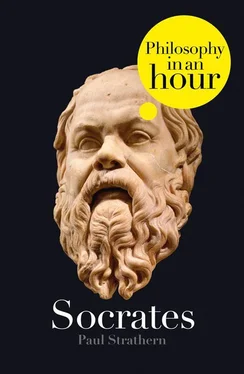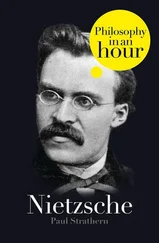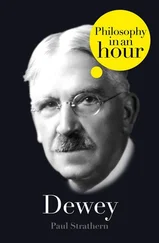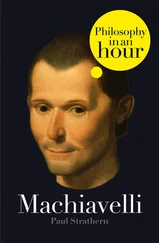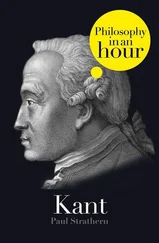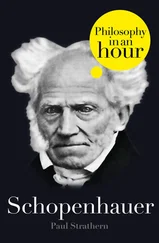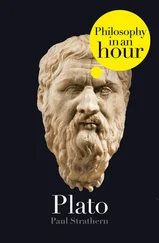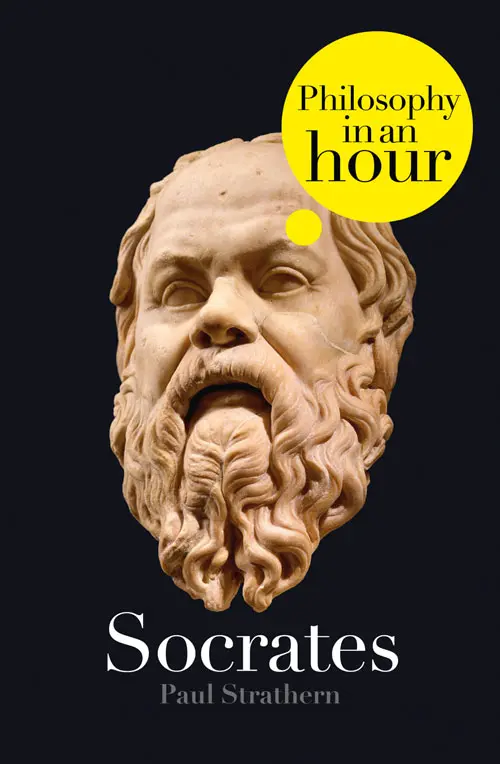
Socrates
PHILOSOPHY IN AN HOUR
Paul Strathern
Cover
Title Page Socrates PHILOSOPHY IN AN HOUR Paul Strathern
Introduction
Socrates’ Life and Works
Afterword
Further Information Конец ознакомительного фрагмента. Текст предоставлен ООО «ЛитРес». Прочитайте эту книгу целиком, купив полную легальную версию на ЛитРес. Безопасно оплатить книгу можно банковской картой Visa, MasterCard, Maestro, со счета мобильного телефона, с платежного терминала, в салоне МТС или Связной, через PayPal, WebMoney, Яндекс.Деньги, QIWI Кошелек, бонусными картами или другим удобным Вам способом.
Some Observations Attributed to Socrates
Chronology of Significant Philosophical Dates
Chronology of Socrates’ Life
Chronology of Socrates’ Era
Recommended Reading
About the Author Конец ознакомительного фрагмента. Текст предоставлен ООО «ЛитРес». Прочитайте эту книгу целиком, купив полную легальную версию на ЛитРес. Безопасно оплатить книгу можно банковской картой Visa, MasterCard, Maestro, со счета мобильного телефона, с платежного терминала, в салоне МТС или Связной, через PayPal, WebMoney, Яндекс.Деньги, QIWI Кошелек, бонусными картами или другим удобным Вам способом.
Copyright Конец ознакомительного фрагмента. Текст предоставлен ООО «ЛитРес». Прочитайте эту книгу целиком, купив полную легальную версию на ЛитРес. Безопасно оплатить книгу можно банковской картой Visa, MasterCard, Maestro, со счета мобильного телефона, с платежного терминала, в салоне МТС или Связной, через PayPal, WebMoney, Яндекс.Деньги, QIWI Кошелек, бонусными картами или другим удобным Вам способом.
About the Publisher Конец ознакомительного фрагмента. Текст предоставлен ООО «ЛитРес». Прочитайте эту книгу целиком, купив полную легальную версию на ЛитРес. Безопасно оплатить книгу можно банковской картой Visa, MasterCard, Maestro, со счета мобильного телефона, с платежного терминала, в салоне МТС или Связной, через PayPal, WebMoney, Яндекс.Деньги, QIWI Кошелек, бонусными картами или другим удобным Вам способом.
In the beginning was the world, and we didn’t really know much about it. But we survived regardless. The original philosopher was the puzzled Neolithic who questioned this state of affairs. What on earth was going on? What was it all about?
For countless millennia the answers we came up with were not philosophy. They consisted of superstition, fairy tales, and religion. The first people to come up with philosophical answers – that is, those who used reason and observation unclouded by metaphysical mumbo jumbo – were the ancient Greeks, in the sixth century B.C. Precisely why this major step in human evolution should have taken place at this time on the obscure shores of the Aegean remains a mystery. The Chinese, the Babylonians, and the ancient Egyptians were all more advanced at this stage, their civilizations more powerful and extensive. They also had superior practical technology and knew far more about mathematics. The intricacies of silk manufacture, pyramid building, and the ability to predict eclipses were well beyond Greek capacities. And compared with the theological sophistications of the Chinese, Babylonian, and ancient Egyptian religions, the ancient Greeks’ collection of primitive myths about the behaviour of the gods on Olympus was laughable. This was religion retarded in its infantile stage of development (only when it matures does religion require human sacrifice).
But this childish state of affairs may well hold the key to the mystery, at least in part. Without it, the miraculous flowering of ancient Greek culture – which is still recognisable as the foundation of Western culture – may never have occurred. The trivial religion of the Greeks had no place for theological or intellectual speculation. Before the Greeks, intellectual inquiry had always been related to religion – allowing metaphysics and superstition to infiltrate the processes of reason and observation. Babylonian astronomy was plagued by astrology; Egyptian mathematics was permeated with religious superstition. When the ancient Greeks began to ask intellectual questions, they were unencumbered by such ballast. Their thoughts soared free in a real world.
Perhaps as a result of this freedom, the development of ancient Greek culture took place at truly miraculous speed. For example, Greek tragedy developed from stilted and primitive religious ritual to sophisticated drama (formally little altered to this day) in the course of a single generation . Likewise, philosophy began midway through the sixth century B.C., but by the end of the following century it had produced Plato, whom many still regard as its most masterly exponent. The advances in ancient Greece during the fifth century B.C. remain qualitatively unrivalled to this day. And only the twentieth century exceeds it in quantitative change.
The first philosopher is generally recognised as Thales of Miletus, an ancient Greek from Asia Minor. We know he was practicing his profession in 585 B.C. because he achieved fame by predicting an eclipse of the sun which occurred in that year. (This knowledge he almost certainly cribbed from Babylonian sources.) Thales is regarded as the first real philosopher because he was the first to attempt an explanation of the world in terms of its observable nature rather than by mythology. This meant that his conclusions could be subjected to rational argument about whether they were right or wrong. The main thesis of Thales’s philosophy was that everything was ultimately made up of water. He thus set the tone for all future philosophy by getting it wrong.
After Thales, philosophy rapidly began to flourish. More philosophers appeared, with a succession of different explanations of the world. It wasn’t made of water, it was made of fire – then air, then pieces of light, and so on. The philosophers who belong to this period (mid-sixth to mid-fifth century B.C.) are generally known as the pre-Socratics. For the most part only fragments of their philosophy remain – either in directly written form or in references from other sources. Despite this, many of their names are still familiar. Pythagoras – famous for the mathematical theorem he did not in fact discover himself – discerned the role played by numbers in music. (Harmony depends upon numerical ratios.) This led him to believe that the world is ultimately made up of numbers. Such a theory is not quite as daft as it may at first appear. Einstein, for instance, certainly believed that the universe could be explained in terms of mathematics. Modern scientists may not believe that the world is made up of numbers, but from quarks to quasars numbers play a central role in description and definition. Another pre-Socratic philosopher who anticipated modern science was Democritus, who believed the world was made up of atoms. (It was to be more than two thousand years before scientists came round to this point of view.)
Читать дальше
